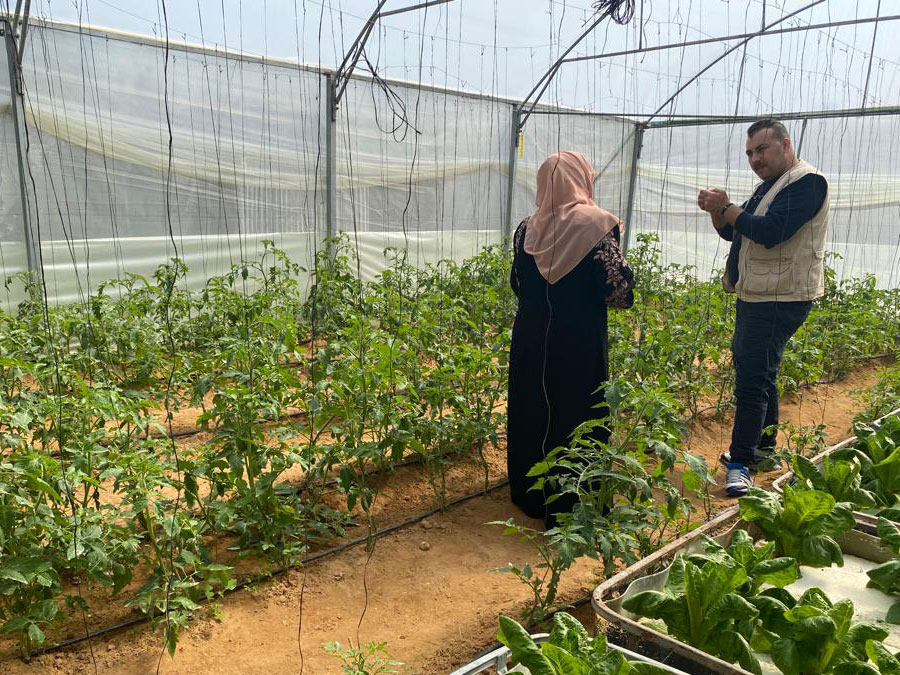Leaving no one behind is more than a statement. It is a heartfelt commitment to help the most vulnerable people in the world’s toughest places — a commitment — volunteers demonstrate daily. In seven Arab States for instance, 57 UN Volunteers have supported the World Food Programme’s (WFP) humanitarian response since 2020. These include specialists and youth, nationals and internationals, who contribute to WFP’s mandate in various roles.
In Lebanon and Gaza, high unemployment, soaring costs of living and limited social assistance at the national level have forced millions into poverty.
Lebanese people, in particular, suffered financial and humanitarian setbacks following the explosion at the Port of Beirut in 2020. With the Lebanese pound incurring a loss of more than 90 per cent of its value to the economic challenges that continue to limit any growth — the conflict in Ukraine adds more difficulties — the biggest of them all, a decrease in food imports.
Now roughly 54 per cent of Lebanese people and 88 per cent of Syrian refugees need humanitarian assistance. Nevertheless, WFP continues to accelerate its response to keep pace.
We are proud to partner with UNV. In fact, as the economic situation worsens and more families sink into poverty, the WFP’s operation continues to grow and evolve. UN Volunteers are an added value who work with the highest humanitarian standards, passion, and dedication to assist Lebanese and Syrian populations in the country. From field monitoring assistants to programme specialists, they display a significant number of skills that are essential to the WFP’s assistance. Therefore, we intend to expand the number of UN Volunteers in the future. -- Mr. Abdallah Al Wardat, WFP Country Director in Lebanon.
National UN Volunteer Reem Nisr is part of a team of 16 UN Volunteers currently serving with WFP in Lebanon. As Programme Assistant, Reem supports partners, conducts data analysis, and produces reports for WFP’s School Feeding Unit. The unit is a lifeline to an increasing number of parents unable to afford the costs of private education and other expenses that are now considered a luxury in Lebanon.
For example, over 100,000 students have made the transition from private to public school since 2019. In addition, at least 46 per cent of Lebanese households are currently food insecure. Moreover, they often skip meals to ration resources and send children to school hungry. These circumstances subsequently decrease performance, and have long-term health implications.
Reem understands the nexus between poverty, food security and health. This is why she is excited about the School Feeding programme as it frees up much-needed financial resources to help parents meet other basic household needs.
A key resource — her reports help WFP leaders and partners track the progress of the School Feeding programme relative to the attendance and performance of the most vulnerable students. In addition, these reports identify the resources needed to further increase access to school meals, and make sure every student is healthy and ready to learn.

Gaza is another example where UN Volunteers are tackling food insecurity in a highly fragile context. According to the WFP, 64.4 per cent of people in Gaza are food insecure. Indeed, “Gaza’s socioeconomic fabric is faltering due to the cumulative impact of 15 years of sea, land and air blockade,” WFP in the State of Palestine notes.
It is within this context where national UN Youth Volunteer Mahmoud Al Balawi supports WFP’s efforts to reverse this trend through technology. As Information Technology Assistant, he trains households that are purely headed by women to manage a remote, mobile-enabled irrigation system. His activities are especially significant because more than 60 per cent of women in Gaza are unemployed, more likely to be food insecure and practice food rationing. When they grow their own food, they can put an end to hunger and poverty.
Through the WFP programmes, I stand against all levels of poverty and inequality, respecting the dignity of the most vulnerable. -- Mahmoud Al Balawi, UN Youth Volunteer with WFP in Gaza.
Through their service with WFP and within the wider UN humanitarian efforts, UN Volunteers show unwavering commitment to leaving no one behind. In doing so, they provide uninterrupted access of food to the most vulnerable living in crises.

